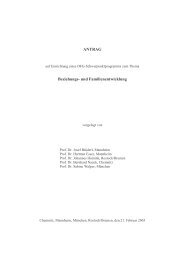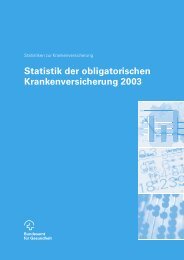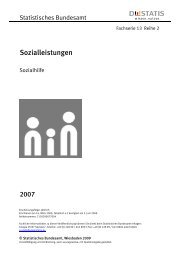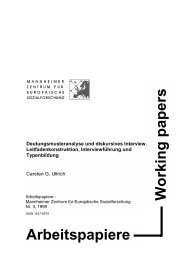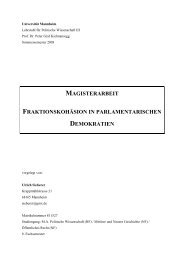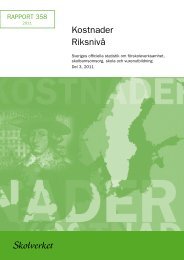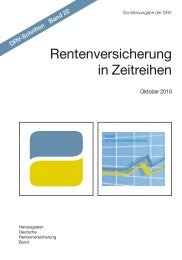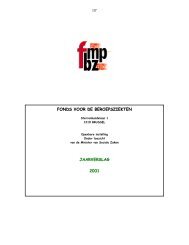Tobias Auberger and Tanja Hitzel-Cassagnes - Mzes
Tobias Auberger and Tanja Hitzel-Cassagnes - Mzes
Tobias Auberger and Tanja Hitzel-Cassagnes - Mzes
You also want an ePaper? Increase the reach of your titles
YUMPU automatically turns print PDFs into web optimized ePapers that Google loves.
17<br />
2. By requiring national courts, esp. lower courts, to question <strong>and</strong> if necessary to adjust the<br />
outcomes of domestic legislation, the ECJ has not just influenced the interpretative legal<br />
cultures (see Dann 2005, Bogd<strong>and</strong>y 2003, Heutger 2003 <strong>and</strong> 2004, Lefevre 2004) of the<br />
legal systems but also the role <strong>and</strong> functioning of national judiciaries, their embedding in<br />
the legal hierarchy as well as their involvement in political processes. Identifying tendencies<br />
of “judicial empowerment” regarding the lower courts, in general further “judicialisation<br />
of politics” on the one h<strong>and</strong> <strong>and</strong> some kind of “Politisation” of law <strong>and</strong> of the judiciary<br />
on the other h<strong>and</strong> are but different ways of capturing a phenomenon one could describe as a<br />
transformation of the status of judiciaries. Within the European legal system(s) judiciaries<br />
are much more taking part in institutional engineering – which implies an altogether altered<br />
allocation of functions between judiciary <strong>and</strong> legislature, a different relation between constitutional<br />
<strong>and</strong> lower courts, <strong>and</strong> consequently a rise of political <strong>and</strong> social responsibility.<br />
Both aspects, the adoption of a “politicised” role of being a “European” judge <strong>and</strong> the adaptation<br />
of discursive techniques effectuating legal integration, are seen to be crucial for the<br />
functioning of the European Union. At the same time, regarding the functioning of the legal<br />
systems of the new member states, these features are rather absent, so that the question is<br />
whether there might be a structural incompatibility. The potential incompatibilities can be<br />
regarded at three different levels, in relation to an interpretative, an institutional <strong>and</strong> a legal<br />
divide. Firstly, at the bottom line of what might be called legal culture, it has been marked<br />
that the legal tradition of most of the new member states do not see interpretation as an important<br />
part of judicial work, at least not in terms of creative interpretation (see Kühn 2004<br />
<strong>and</strong> 2005). The general underst<strong>and</strong>ing of interpretation is predominantly a positivist, literalist<br />
<strong>and</strong> textualist reading of law, oriented towards mechanical “subsuming”, <strong>and</strong> in this respect<br />
“irreconcilably” in conflict with the European interpretative scheme 8 . Compared with<br />
the practices of the European Courts four differences can be depicted: Teleological <strong>and</strong> purposive<br />
aspects are rather neglected; there are hardly recourses to abstract legal principles<br />
<strong>and</strong> to reasons in the light of principles (rule of law, proportionality etc.); precedents <strong>and</strong><br />
case law is not systematically seen as a binding <strong>and</strong>/or persuading source of law 9 ; <strong>and</strong> fi-<br />
8<br />
It has several times been pointed out that both, legal education <strong>and</strong> legal practices rely on positivist, simplistic<br />
<strong>and</strong> a parochial Savigny kind of reasoning, in the sphere of constitutional <strong>and</strong> administrative law as well as<br />
in the sphere of private law (see for the latter aspect Manko 2005).<br />
9<br />
This is – among others – an aspect that helps underst<strong>and</strong>ing the conflicts between constitutional <strong>and</strong> lower<br />
courts, see for instance Kühn 2004, Albi 2004 <strong>and</strong> Capeta 2006).




